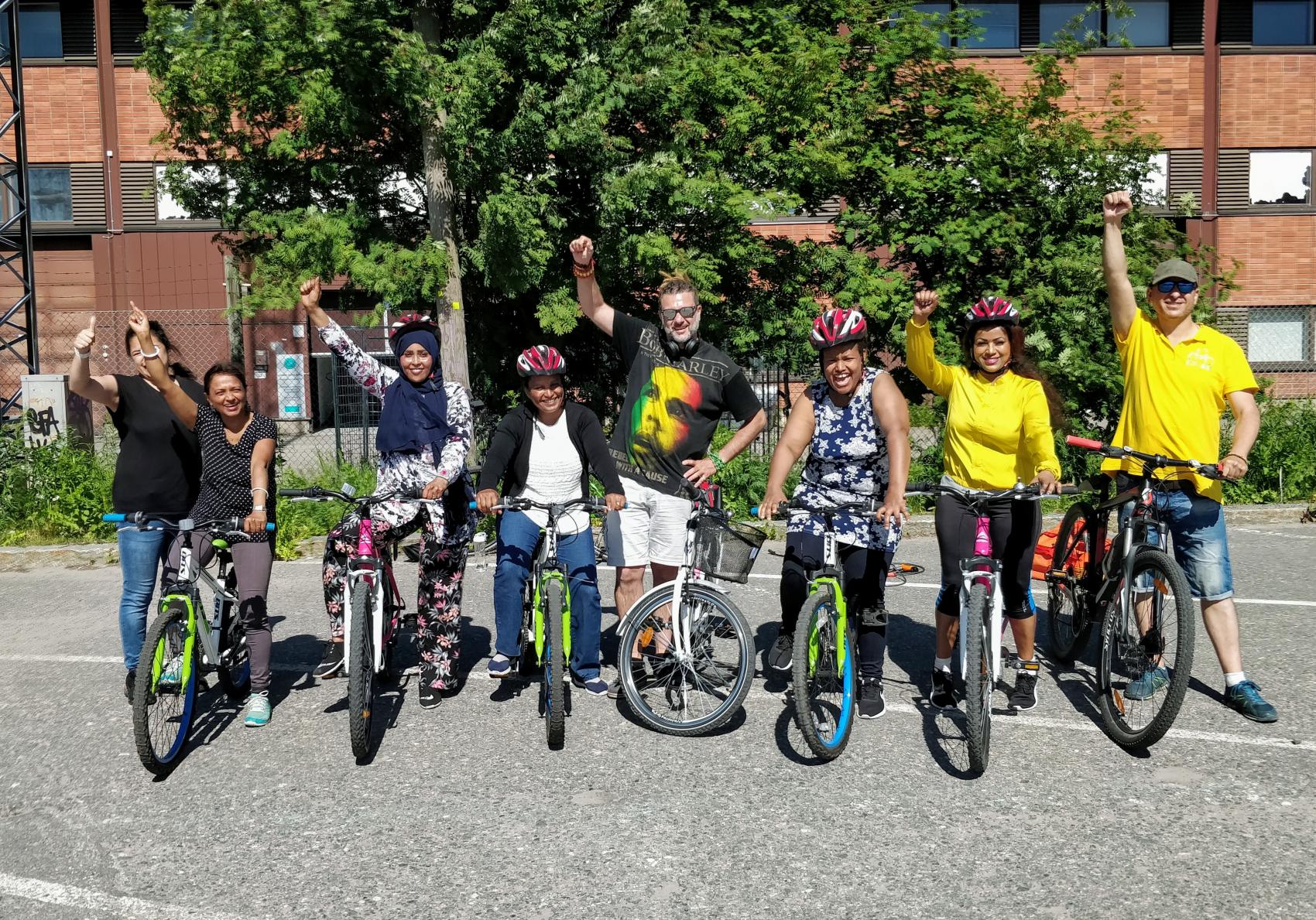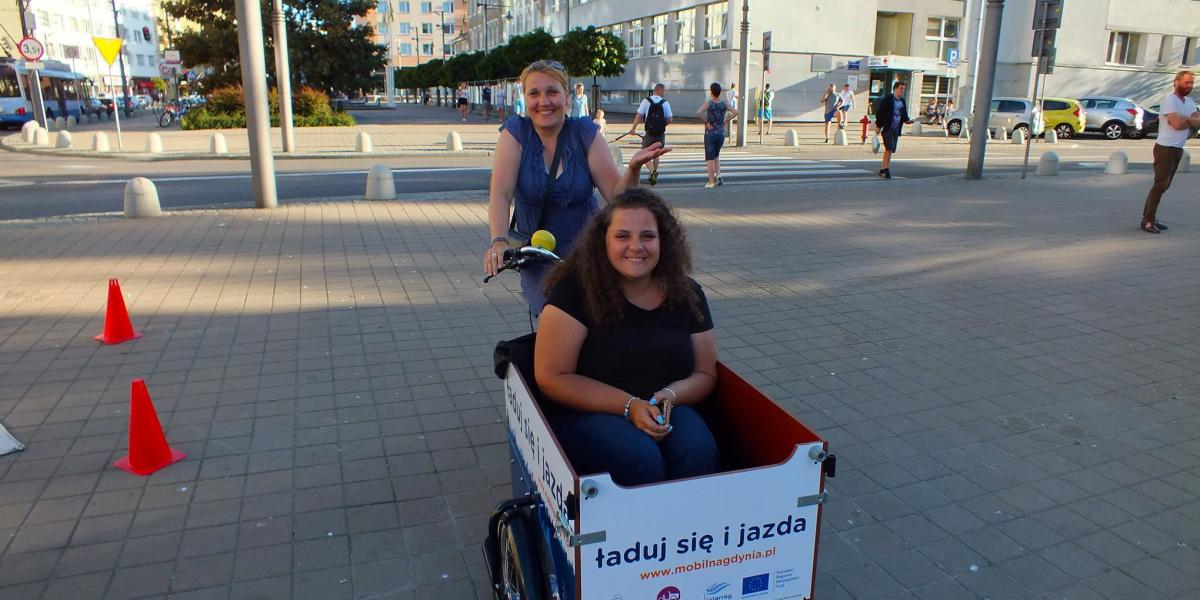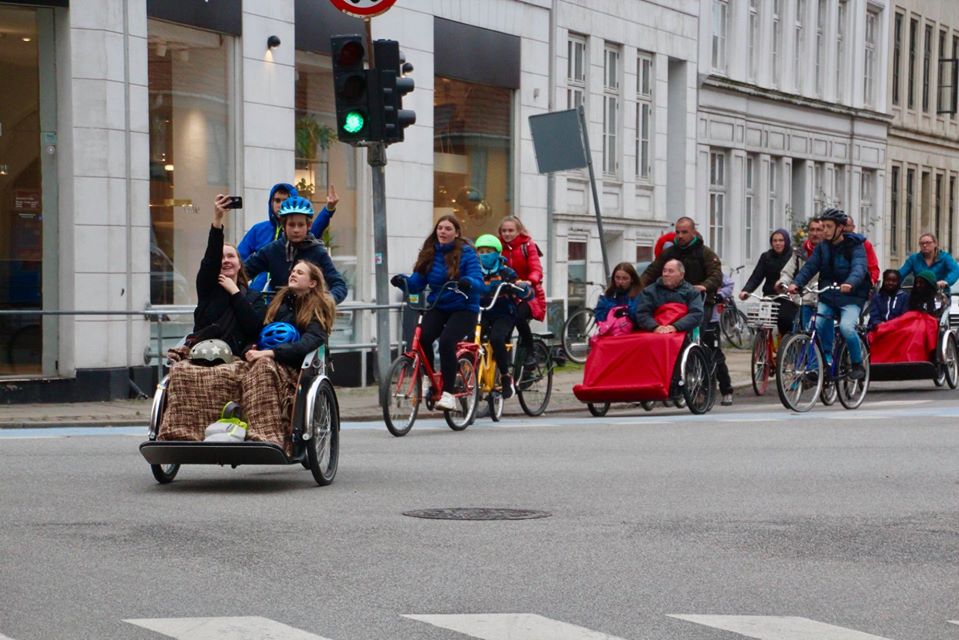
Exploring #CycleDiversity: What it is and Why it Matters
The next edition of the Velo-city Conference Series will take place in Lisbon, Portugal from 1-4 June 2021. Velo-city 2021 Lisboa will revolve around the creation of inclusive, cycle-friendly environments, which are accessible to cyclists of all ages, abilities, backgrounds, and genders.
As we are facing the unprecedented COVID 19 crisis and an escalating climate crisis, the need for resilient, green, and equitable urban development is more apparent than ever before. The ever-increasing volume of traffic has become a tremendous burden on the environment and shed a light on urban inequality.
Cycling has the power to address and mitigate these effects. As the cheapest and simplest mode of transport, cycling helps to break down mobility barriers and strengthens social cohesion between people of different backgrounds. Policies promoting cycling are therefore crucial for reasons of social justice and inclusion.
Pedalling for Inclusion - Case Studies of Building a Diverse Cycling Culture:
The sheer variety of bicycles is also reflected in its users. Cycle diversity reveals itself in every corner of the globe. It moves across different political contexts and travels through diverse climates and natural and built environments.
We have collected a non-exhaustive list of case studies and projects that have embraced cycle diversity by increasing accessibility to bicycles for all.
Free cycling classes for refugees and immigrants have been a success story in a number of EU countries, including Sweden, Germany, the Netherlands, or Finland. Often managed by ECF members, these initiatives give refugees, and in particular women, the possibility to participate more actively in society. For example, in February 2018, the Finnish Cyclist’s Federation (Pyöräliitto) started the “Immigrants on bike” project offering free cycling lessons to empower immigrants.
Cargo bikes create more inclusive communities where a person’s age, background, or ability to move does not hinder their participation in social life. The city of Gdynia uses cargo bikes as a means of engaging citizens. The municipality fleet has cargo bikes with a ramp in front making them accessible with a wheelchair.
Three of ECF’s member organizations are part of the Erasmus+ project “Sustainable Mobility, Sustainable Community”, which promotes social inclusion, inter-generational relationships (specially via Cycling Without Age), environmental values and sustainable mobility with a special focus on cycling. Cycling Without Age uses rickshaws, a form of cargo bike, to facilitate intergenerational relationships while addressing mental health among the elderly.
Due to their great versatility, cargo bikes are ideal for a wide set of tasks, ranging from family logistics to running efficient and successful businesses. Bicycles and cargo bikes offer a safe and more convenient form of transportation for families and their children. With the ability to carry up to four young children at four times less space than a car, (cargo) bikes are much more efficient, all while increasing road safety and urban quality of life.
This single mother from Graz, Austria uses her cargo bike for transporting her children as well as for running her business.
Moreover, E-bikes have a huge potential to open cycling to new groups of the population, such as medium-distance commuters or the elderly. According to the latest market report from CONEBI, ECF’s partners in the bicycle industry, e-bikes remain strong drivers of growth in an otherwise stable EU bicycle market confirming previous research showing that e-bikes open up cycling to more diverse groups.
Previous Velo-cities conferences have already explored the topic of Cycle Diversity. Have a look at a few presentations and get in the mood for Velo-city 2021.
- “Wise & Smart cities: keeping social justice high on the agenda”
- Social inclusion: cycling for all. Case of Mare neighbourhood in Rio de Janeiro
- Velo-city 2021 Dublin, Isabelle Clement, Director of Wheels for Wellbeing, revealed the second iteration of “A Guide to Inclusive Cycling”
Above all, (Cycle) diversity is an asset to hold on to and cherish. We are living in challenging times, which demand ambitious political action, where equity, intergenerational justice and climate concerns must be ever-present. The more diverse our urban environments are, the more resilient they become. Cities are vibrant and seductive, lasting in time but constantly changing and evolving, attracting talents and connecting people of different backgrounds. Urban planning must reflect this complex blend of environmental, social, and economic aspects. Excuses are over, let’s cycle together towards a better future and celebrate #CycleDiversity together!
Do you have any thought, ideas, projects or research related to #CycleDiversity? Why not submit an abstract and have the chance of presenting at the world’s largest cycling conference.
Network/Project Involved:
Contact the author
Recent news!
Upcoming events
Contact Us
Avenue des Arts, 7-8
Postal address: Rue de la Charité, 22
1210 Brussels, Belgium












